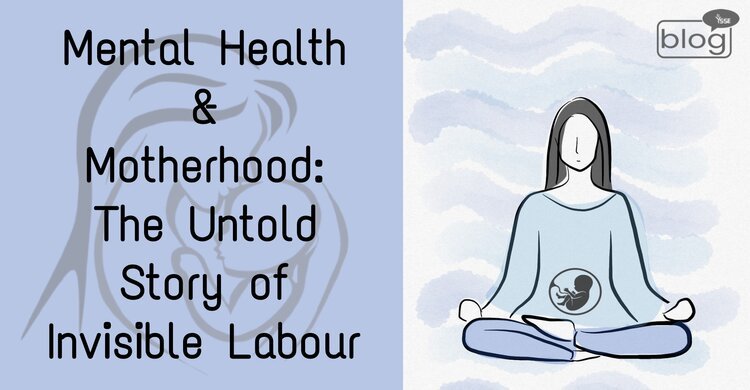Motherhood is a transformative stage of women’s life and health. Motherhood includes responsibility, empathy, and emotion. The journey through the prenatal stage, postpartum stage, and various stages after giving birth can be challenging for both the physical health and mental health of women. This experience differs from person to person as it is a rollercoaster ride of emotions. It is filled with joy, love, happiness and fulfillment. On the other hand, it also includes overwhelmed emotions, anxiety, stress, etc. Throughout the journey of motherhood, women’s mental health draws less attention. It is often neglected and people also label mental health disorders as normal after being a mother or giving birth. Sudden hormonal shifts, added responsibilities and adjustments, changing of roles, changes at work and home, and financial responsibilities cause stress. We should keep in mind that maternal mental health disorders begin with a woman getting pregnant and can stay for the rest of her life. So it should be recognized and treated properly.
There are some myths about motherhood and mental health. People think that mental health challenges are only associated with first-time pregnancy as new mothers look more anxious and worried about their labor and child. But the fact is, it also can affect a woman with multiple children. Motherhood anxiety is related to a child’s well-being and the shifting role of a woman. There are always some societal expectations and the pressure of being a good parent to a child. Mothers often seem overprotective of their children.
Postpartum depression is the most common mental health challenge for mothers. Almost 18% of mothers worldwide suffer from postpartum depression. It starts shortly after giving birth. Some mothers find it difficult to bond with their children. When she was with the baby, they were two souls in one body. But after giving birth, the child demands its own identity which leaves the mother feeling isolated. Postpartum depression can lead to a much worse situation where mothers even try to kill the baby. Some mothers also feel alienated from their partners. This feeling of detachment from their baby or partner leaves her feeling ignored and insecure. Before giving birth, the focus point was the mother but just after giving birth, the attention shifts from mother to newborn child. This attention shift can affect the mother terribly. As her body and mind become vulnerable, these emotions can feel intense.
Mothers also feel guilty for not being good enough. As society continues to raise standards high, mothers often find it difficult to maintain all of them. Guiltiness starts right there.
Lack of self-care is another great reason that triggers mental health challenges. Mothers become very busy with taking care of their children. They hardly have any time of their own. Lack of sleep and insomnia have both physical and mental health hazards. The term “leisure time” vanishes from her dictionary as she continuously thinks about her child’s well-being. And mothers are expected to do that in our society. It is very wrong as mothers’ emotions shadow over her children. So if she is not feeling well, it can affect the child as well.
Mothers’ health is as important as the child’s. This invisible labor doesn’t get its worthy recognition. The term perfect mother or parent does not exist. It is the patriarchal society’s expectation that can feel challenging. Self-care is not a selfish act. It is necessary for a human. Mothers are humans after all. Self-care can only lead to better feelings. As identities change after giving birth, many women feel like they are losing their essence. This feeling can stay for the rest of her being a mother. Complex emotions and thoughts can arise. If that happens, there is no alternative way than to consult mental health experts. It is high time we recognize the invisible labors and challenges that a mother goes through.
To read more blogs like this, click here.
Writer,
Ummay Tasnim Sifat
Intern,
Content Writing Department
YSSE.

